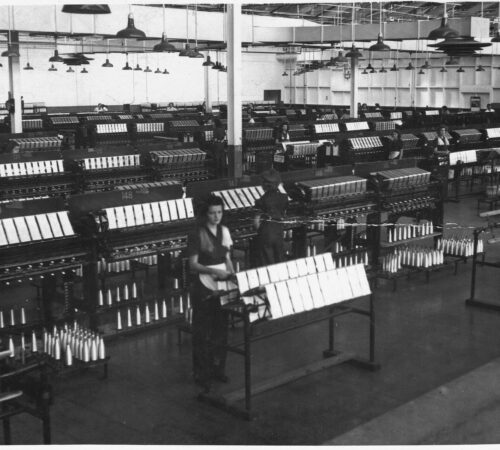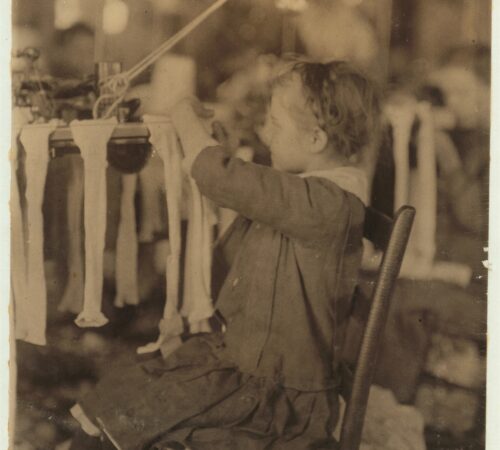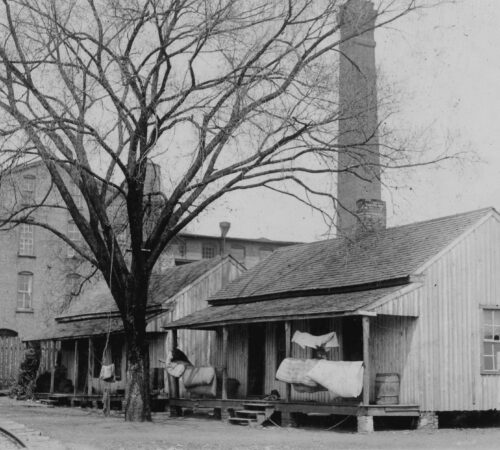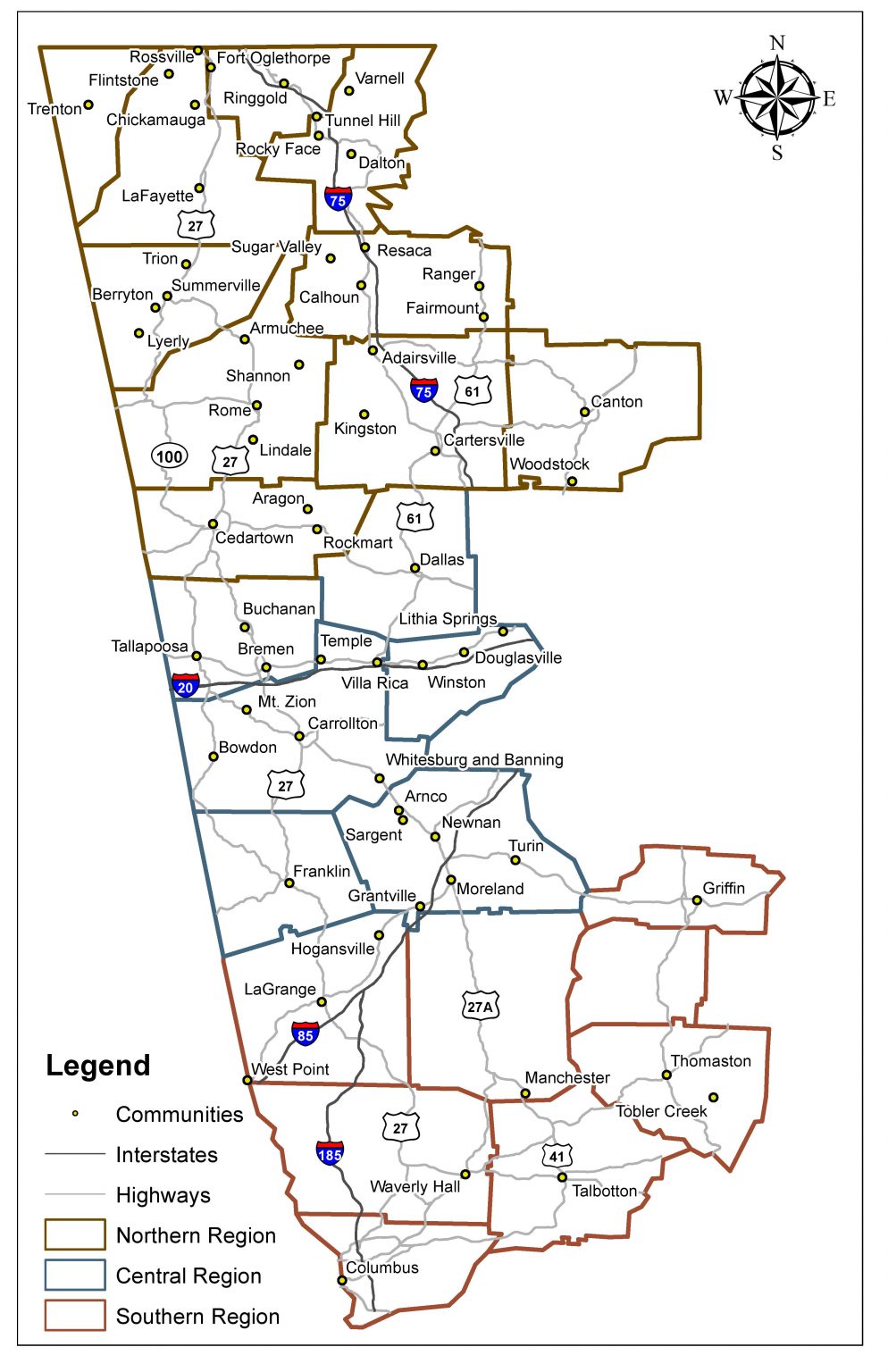Although this community’s textile industry did not last more than around 50 years, it produced a variety of products such as cotton duck, hosiery, chenille bedspreads, carpet, and rayon.
Rome’s textile industry hosted a variety of productions including cotton duck, hosiery, chenille bedspreads, carpet, and rayon. Unfortunately, the textile industry within this community did not last more than around 50 years.
Visit
Things to Do
- Chieftains Museum and Major Ridge Home, 501 Riverside Parkway Northeast: This location is not only a National Historic Landmark but one of the few entities to be verified as a site of the Trail of Tears. Major Ridge was one of the signers of the Treaty of Echota, the treaty which forced the relocation of the local Cherokees. Visit this museum to learn more about the history of the Cherokee Nation!
- Oak Hill and the Martha Berry Museum, 24 Veterans Memorial Highway Northeast: Berry College was opened in 1902 as the brainchild of Martha Berry, the daughter of a local business owner. Visit this museum to learn more about the history of Berry College.
Places to See
The following properties are not open to the public, but you can view them from the exterior to learn more about the buildings that supported the textile industry here.
- Shaw Industries Plant 93, 20 East 12th Street: This modern flooring operation is one of the few remaining vestiges of Rome’s textile industry. It is appropriately located adjacent to the site of Anchor Duck Mills.
- Anchor Duck Mills and Mill Village, East 12th Street Southeast: Although the mill has been demolished and replaced with unrelated buildings, the mill village still stands! Entrances to the mill village can be found at Mclin Street, Blanche Avenue, and Walnut Avenue.
- Reynolds-Rankin Manufacturing Suit Company, 100 Broad Street: When this company was still in operation, it only rented out the front part of the building; the rest of the building was owned by Coca-Cola.
- Rome Manufacturing Company, 2nd Avenue: This facility produced men’s and boy’s undergarments in the first half of the 20th century. The building is well preserved and is now home to several businesses.
History
The textile industry began in Floyd County during the early twentieth century with the opening of Massachusetts Cotton Mills in Lindale. Soon, other textile companies began to set up mills and plants in nearby southern and northern Rome. Rome, one of the largest cities along the trail, was a major producer of cotton duck, hosiery, chenille bedspreads, carpet, and rayon.
Floyd Cotton Mills was one of the earliest textile mills established within the city of Rome in 1903. Floyd Cotton Mill and the cotton duck that the mill produced paved the way for other textile companies to establish themselves in Rome, such as Anchor Duck Mills. Anchor Duck Mills produced duck cotton and a variety of other products. A past employee stated that the mill “could make about any type of fabric that was needed because they had all the various types of equipment.”
Rome Hosiery owned the Cherokee Hosiery Mill, which started production in 1913. The children that were employed by the mill were part of Lewis Wickes Hines famous survey of child labor in American industry. Hines noted that the children could be seen working on the production of hosiery as turners and loopers which were skilled positions.
Walter Dellinger founded Dellinger Bedspread Company to cash in on the rise in demand for chenille bedspreads in the early 1930s. Chenille bedspreads became a popular and profitable industry in Rome and were highly sought after items for tourists who were visiting the area. When the demand for chenille declined after World War II, Dellinger Bedspread Company began to produce carpet until its eventual closing.
In the late 1920s after conducting a nationwide survey, the American Chatillon Corporation purchased 2,000 acres of land in northern Rome and founded the Tubize plant. Tubize produced rayon, a popular synthetic fiber, and gained most of its workforce from Rome and the surrounding communities. During World War II, Tubize produced fibers used in the production of parachutes.
Similar to the textile industry throughout the northwest region, business in the textile mills began to falter in the years following World War II. After merging with several other companies, Floyd Cotton Mills, which had changed its name to Floyd, Strain, and Juilliard Company, closed in the late 1950s. The Dellinger Plant eventually shut down as well.
Charter Trail Members
- Greater Rome Convention and Visitors Bureau
- Rome Area History Center
- Rome Downtown Development Authority
- Rome Historic Preservation Commission
- Rome-Floyd Chamber of Commerce
- Rome-Floyd County Library
Resources to Explore
Click on the following links to learn more about this region.
- Facts for Kids
- Digital Library of Georgia
- Georgia Archives Virtual Vault
- Georgia Historical Society
- New Georgia Encyclopedia
Back to Community List
Email the Trail at wgtht@westga.edu or visit our Contact Us page for more information.



